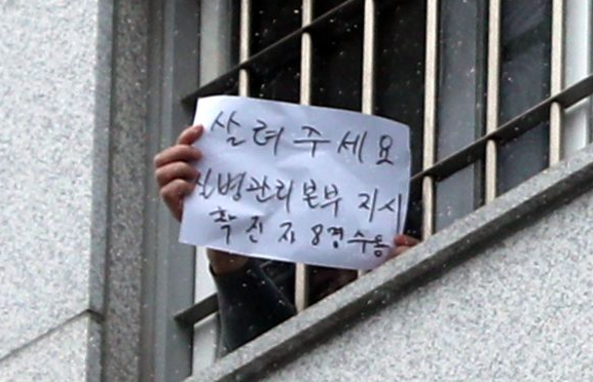Input 2021.01.05 06:00

Choe-Hyeon Cho, a lawyer at the Korea Central Law Firm, said on the 4th that “the cases were poured out in the eastern detention center due to the negligence of the correctional authorities.”
Attorney Cho said, “It was a situation where the concentration between prisoners was high, such as living five to eight people in one prison cell, so that the distance could not be properly achieved.” As a result, it has caused damage to the health and lives of prisoners, who are citizens.”
National compensation is compensation that a public official claims to the state when he or she intentionally or negligently violates laws and ordinances to inflict damage to the public while performing his/her duties. In the case of the corona spread in detention centers, it is difficult to say that the government was intentional. What matters is whether there was any negligence.
Legal experts say, “Even if negligence is admitted, national liability for compensation arises,” and “the correctional authority’s negligence can be admitted from three perspectives.”
The first is that a full corona test was conducted on detainees only three weeks after the first confirmed case in the detention center occurred. The second is that masks were not provided to prisoners until a confirmed person in the eastern detention center came out, and the third was that negative detainees who were in close contact with the confirmed patient were left unattended in a multiperson room due to lack of isolation space. to be.

The first confirmed person came out from the Eastern detention center on November 27 last year. Afterwards, 14 additional confirmed cases were released until December 14, but the Ministry of Justice did not conduct a full inspection on all prisoners. On December 18th, the confirmed patients and general prisoners lived together without isolation until a pile of 185 confirmed patients were found during the first total examination.
The fact that masks were not provided to detainees until the first confirmed cases came out from the detention center is also a reason why the government has neglected the duty to protect the right to life of prisoners.
Although the correctional authorities have not provided masks for reasons of lack of budget, etc., they say they have allowed them to purchase cotton masks even in detention centers. However, in response to this, legal experts said, “The government naturally had a legal obligation to provide masks to prisoners for free.”
Tae-seop Eom of Law Firm O’Kims said, “Because the detainees were held in detention centers for reasons of the state’s criminal justice policy, the government has a legal obligation to protect the lives of prisoners.” You are legally responsible for what you don’t.”
The fact that negative detainees who were in close contact with the confirmed patient were left in a shared room as it was, can be a basis for supporting the negligence responsibility of the correctional authorities. The correctional authorities are in a position that “it was unavoidable,” citing reasons such as lack of space, but legal experts say that negligence responsibility is difficult to avoid. This is because if the prisoners were overcrowded in one room, the possibility that they could become infected with the corona was sufficiently predicted, but appropriate measures were not taken.
Chung Joo-baek, a professor of constitutional law at Chungnam National University Law School, said, “It is the government’s fault that we did not try to improve the overcrowding situation by sending out unconvicted prisoners through parole, etc.,” he said. “I said.
